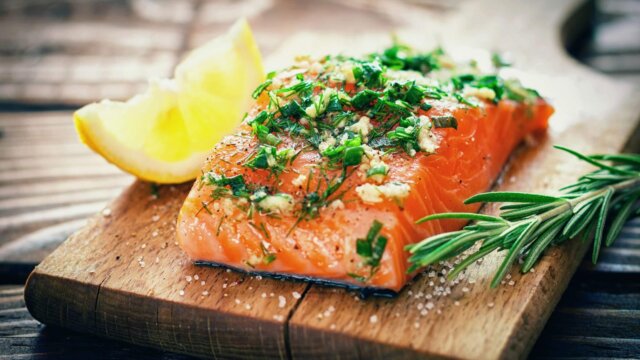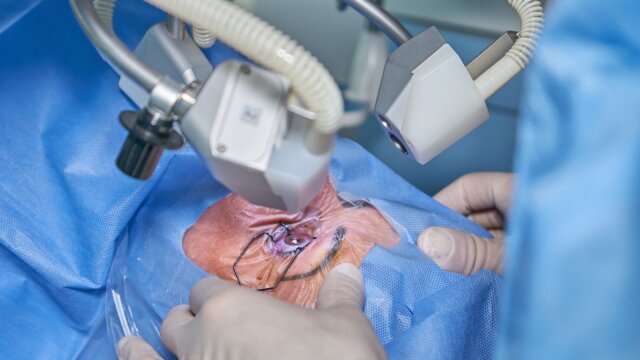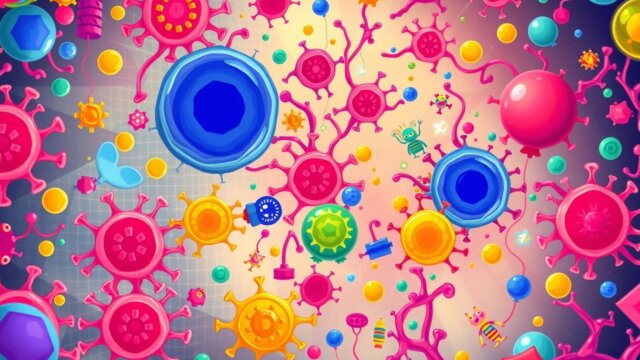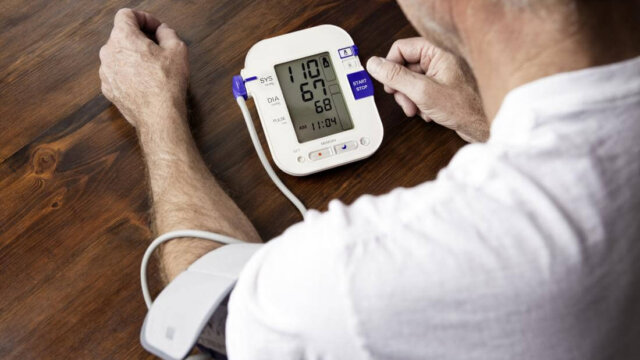FTC disclaimer: This post may contains affiliate links and we will be compensated if you click on a link and make a purchase.
Fertility issues affect over 15% of couples. But there are natural ways to boost your fertility and get pregnant faster. In fact, changing your diet and lifestyle can increase fertility by up to 69%. This article will look at 17 natural ways to help you conceive and start a family.
Key Takeaways
- Natural remedies like herbs, vitamins, and minerals can support fertility in both men and women
- Adopting a diet rich in antioxidants, fiber, and healthy fats can enhance reproductive health
- Maintaining a healthy weight, managing stress, and getting regular exercise can boost fertility
- Avoiding excess caffeine, alcohol, and refined carbs can improve your chances of conception
- Consulting a healthcare provider is recommended if conception does not occur within 12 months for those under 35 or 6 months for those over 35
17 Natural Ways to Conceive a Baby
Eat Foods Rich in Antioxidants
Eating foods full of antioxidants can help you get pregnant. Foods like vitamins C and E, folate, beta-carotene, and lutein protect sperm and egg cells from damage. Eating more plants instead of meat can lower the risk of infertility. Women who ate more fruits had a lower chance of not being able to have kids.
Walnuts are great because they contain omega-3s and omega-6s that help men’s semen health. Asparagus contains a lot of folic acid, which is good for fertility. Egg yolks are important for the health of embryos after conception.
Sunflower seeds contain nutrients like Vitamin E, zinc, folate, and selenium that help with fertility. Foods with healthy fats, like Greek yogurt and cheese, help with ovulation and pregnancy. Salmon has omega-3s that are good for the baby’s growth when eaten a little bit each week.
Quinoa is a grain without carbs that has protein, zinc, and folate for pregnancy and healthy baby growth. Avocados give you Vitamin K, potassium, folate, fiber, and healthy fats for pregnancy.
Adding these foods to your diet can help improve your fertility and increase your chances of getting pregnant.
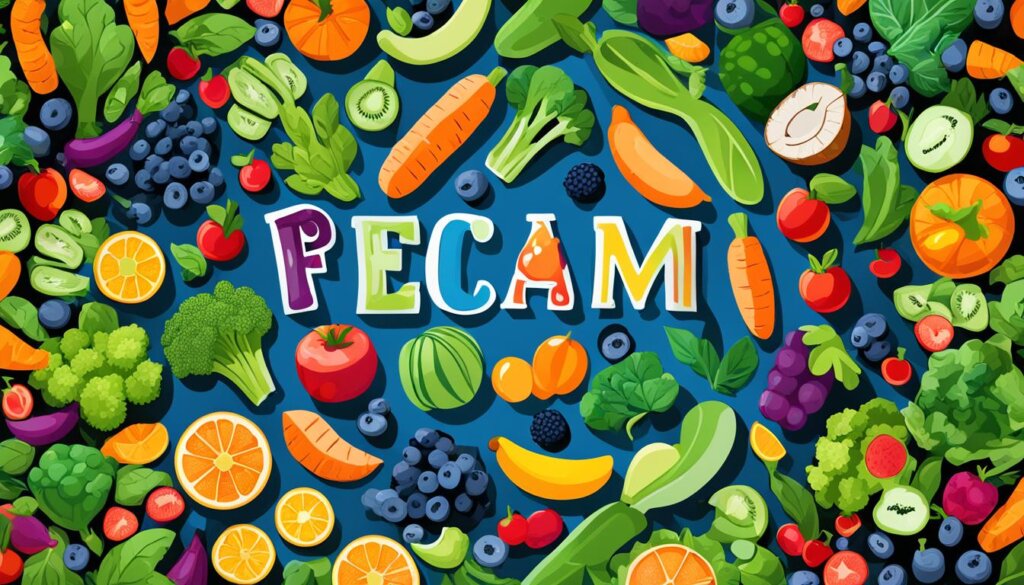
Eat a Hearty Breakfast
Eating a big breakfast can really help improve fertility, especially for those with PCOS, a big cause of infertility. Studies show that a big breakfast can help balance hormones and lower insulin and testosterone in women with PCOS. This can make it easier to get pregnant.
It’s all about when and what you eat. Eating more calories in the morning helps control your blood sugar and insulin levels, which are key for hormone balance and ovulation. Adding foods like whole grains, lean proteins, healthy fats, and fiber-rich fruits and vegetables helps your body’s fertility.
Try to eat a breakfast that’s 30-50% of your daily calories. This can help balance your hormones, reduce inflammation, and make your reproductive system healthier. It also supports your overall health on your path to having a baby.
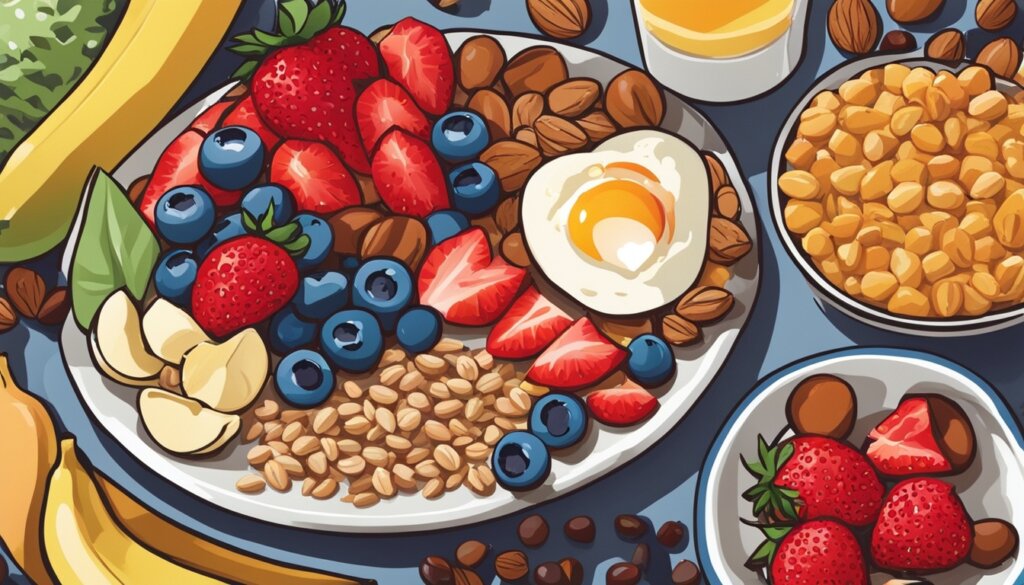
Focus on a breakfast full of nutrients, not just calories. Making smart food choices can greatly improve your fertility and boost your chances of having a healthy baby.
Nutrient | Recommended Daily Intake | Benefits for Fertility |
|---|---|---|
Folic Acid | 400 mcg | Prevents neural tube defects in the baby |
Calcium | 1,500 mg | Supports bone health and development for the baby |
Iron | 18 mg (27 mg during pregnancy) | Prevents iron deficiency in the baby |
Fiber | Increase by 10 g/day | Lowers the risk of gestational diabetes by 26% |
Vitamin C | Found in citrus fruits | Improves iron absorption from non-meat sources |
Low-mercury Fish | 8-12 oz/week | Provides omega-3s essential for fertility |
Adding these foods to your breakfast can really help your fertility and increase your chances of getting pregnant. A balanced and nourishing breakfast is a key part of your fertility plan.
Prioritize Omega-3 Fatty Acids
The fats you eat can really help with fertility. Omega-3 fatty acids in fatty fish, flaxseeds, chia seeds, and walnuts are great for conception. These fats help keep hormones balanced and support your reproductive health.
Eating a lot of trans fats and not enough unsaturated fats can make it harder to get pregnant. But eating foods rich in omega-3 can help improve your chances of getting pregnant. So, eating these “good fats” is key when you’re trying to have a baby.

Eating a balanced diet full of whole, nutritious foods is important for fertility. Focusing on omega-3s and other healthy fats helps your body prepare for pregnancy, creating a healthy environment for a successful pregnancy.
Cut Down on Carbs if You Have PCOS
If you have polycystic ovary syndrome (PCOS), eating fewer carbs can help. It can make you more fertile and improve your reproductive health. Studies show that eating less than 45% of calories from carbs is good for PCOS.
It can help with your menstrual cycle, improve insulin’s effectiveness, and help you manage your weight, which are key to getting pregnant.
One study found eating more carbs can make it harder to get pregnant. Women eating more carbs were 78% more likely to have trouble getting pregnant. This shows it’s key to eat fewer refined carbs. They can make your blood sugar and insulin levels go up. This can mess with ovulation and making babies.
Also, about 60-85% of PCOS women have insulin resistance. And 40% can’t use myo-inositol well. A low-carb diet can help with insulin levels and make your body more sensitive to it. This can help with fertility.
By eating whole, nutrient-rich carbs and avoiding refined ones, you can help your fertility.
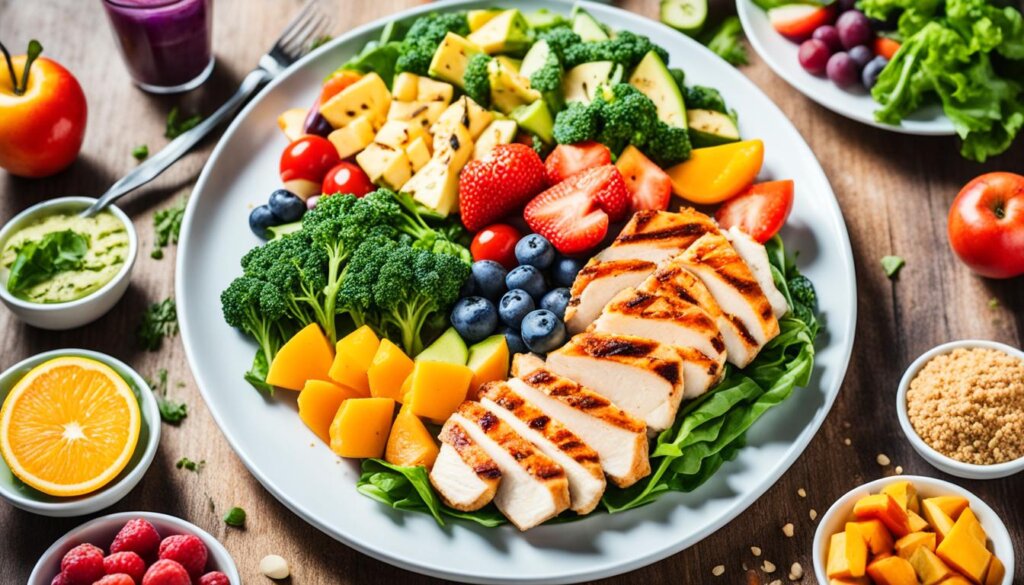
“Reducing carb intake has been shown to be an effective way to manage PCOS and support fertility. It’s a simple yet powerful dietary change that can make a significant difference.”
Minimize Refined Carbs
The carbs you eat can really affect your fertility. Foods high in refined carbs, like sugary snacks, white bread, and pasta, can raise your blood sugar and insulin levels, messing with your ovulation.
These carbs get into your body fast, causing a quick jump in blood sugar and insulin. High insulin levels can mess up your reproductive hormones, making it hard for eggs to mature and ovulate.
On the other hand, eating whole grains, beans, and veggies is good for fertility. These foods are slow to digest and don’t cause big spikes in blood sugar and insulin, which can help your body’s fertility work better.
A diet high in fat and low in carbs is best for fertility, as fats are key for making hormones. Cholesterol, found in fats, is vital for making reproductive hormones. Healthy fats also help fight inflammation, which can affect fertility.
“Consistently elevated insulin can cause the body to produce fewer reproductive hormones because it thinks it doesn’t need it. This can contribute to a lack of egg maturation and ovulation.”
Watch what carbs you eat and pick ones that are nutrient-rich and low on the glycemic index. This can help your body’s fertility and boost your pregnancy chances.
Pay Attention to Fiber
Paying attention to fiber can help boost fertility. Studies show that eating more fiber and less sugar can help women get pregnant. Fiber keeps blood sugar stable and gets rid of extra hormones, which is good for fertility.
Whole grains, fruits, veggies, and beans are high in fiber and low in sugar. Eating these foods can help your body work better to make babies.
Balancing fiber, protein, and healthy fats is important for reproductive health. Eating fiber-rich foods often is a good step towards better fertility and pregnancy.
Reconsider Your Protein Sources
Choosing the right protein can really help improve your fertility. Plant-based proteins like beans, lentils, and nuts are better for fertility than animal proteins. Switching just 5% of your calories to plant-based protein can reduce infertility risk by over half.
The Mediterranean diet is full of fish, legumes, and veggies. It’s good for fertility. Eating more fish can lead to more successful births with fertility treatments like IVF. Also, eating too many trans fats can raise the risk of infertility by 31% compared to eating monounsaturated fats.
Choosing whole grains over refined carbs is key. Whole grains are linked to a lower risk of infertility. Eating a balanced diet with plant-based proteins, healthy fats, and complex carbs can help fertility.
Plant-based Proteins and Fertility
Adding more plant-based proteins to your diet can boost your fertility. These foods are full of antioxidants, fiber, and vitamins that help improve egg quality and reproductive health.
Nutrient | Benefits for Fertility |
|---|---|
Folate | Helps prevent neural tube defects and supports healthy fetal development. |
Omega-3 Fatty Acids | Improve egg quality and delay aging, benefiting nerve development for the baby. |
Antioxidants | Protect cells from oxidative stress, which can damage sperm and egg cells. |
Vitamin D | Aid in hormonal balance and boost fertility. |
Low Glycemic Index | Help maintain steady blood sugar levels and improve fertility. |
By eating plant-based proteins, you support your fertility and get important nutrients for your health and your future baby’s health.
Don’t Fear Dairy
Dairy products might seem like a bad idea when you’re trying to get pregnant. But, the truth is that research on dairy and infertility is not clear-cut. In fact, dairy is packed with nutrients like vitamin D, which could help with fertility.
A 2013 study showed that full-fat dairy might hurt sperm quality. But low-fat dairy didn’t have the same effect. So, if you’re trying to have a baby, choosing low-fat dairy like milk, yogurt, and cheese could help your fertility.
There’s no solid proof that dairy hurts fertility. While we need more studies, what we know now is that dairy can be good for fertility. So, go ahead and enjoy Dairy Products and Fertility. Ensure you get enough Vitamin D and Conception through low-fat Dairy for Male Fertility.
“Dairy products contain a range of important nutrients, including vitamin D, which may be beneficial for fertility.”
Consider Prenatal Vitamins
Adding prenatal vitamins to your daily routine is a good idea if you’re trying to conceive. These vitamins are made to give you more of nutrients like folic acid and B vitamins. Doctors suggest taking them three months before trying to get pregnant to help you and your future baby.
When picking a prenatal vitamin, ensure it has 400 micrograms of folic acid and enough iron, vitamin D, calcium, and omega-3 fatty acids. These nutrients are key for a healthy pregnancy. Taking enough folic acid can prevent serious birth defects. Not having enough iodine can cause serious problems for the baby, like mental issues and deafness.
The science of prenatal vitamins and fertility is not clear. But, these supplements do offer important nutrients for a healthy pregnancy. Iron supplements can help women with ovulation problems, and folic acid can lower the risk of miscarriage. Eating a Mediterranean diet full of fertility foods can also boost fertility in some cases.
Always talk to your doctor before starting prenatal vitamins. They can check your health history and determine what nutrients you need for fertility. The first three months of pregnancy are very important for the baby’s development.
Adding prenatal vitamins to your routine before pregnancy helps ensure your body is ready for a healthy pregnancy. These supplements are great for both you and your future baby.
“Prenatal vitamins are a crucial part of the preconception journey, providing essential nutrients to support fertility and a healthy pregnancy.”
Get Active
Exercise is great for your health and can help with fertility. It makes both men and women more fertile, especially if they are overweight. Working out regularly can help you reach a healthy weight, which is good for getting pregnant. Being too thin or too heavy can make it harder to conceive.
For people with PCOS, a common cause of infertility, exercise is very helpful. Yoga can even help women trying fertility treatments by making their bodies stronger.
But, it’s key to exercise wisely. Too much hard exercise can hurt fertility for some. Stick to moderate activities like walking, swimming, or cycling for the best results. Talk to a doctor to find the best exercises for you.
Exercise Type | Fertility Impact |
|---|---|
Moderate Exercise | Increases chances of conception |
High-Intensity Exercise | May negatively impact female fertility |
Yoga | Can boost fertility rates, especially for those undergoing assisted reproductive technology |
Adding moderate exercise to your day can really help your fertility. Just pick exercises that fit you and your fertility goals.
“Regular and moderate exercise helps achieve a normal weight, increasing chances for pregnancy.”
Take Time to Relax
Trying to have a baby can be hard and stressful. It can make you feel more anxious and stressed. Even though some argue about the link between stress and fertility, studies show that fertility issues can make you stressed, anxious, and depressed.
Being stressed can also affect your body’s ability to have a baby. High stress can hurt your reproductive health, making IVF treatments less effective and lowering the chance of fertilization. Getting enough sleep, 8-9 hours a night, can help lower stress. Activities like meditation and gentle exercise can also help you relax.
Waiting for two weeks after ovulation can be very stressful for couples. Some might take many pregnancy tests, which can make them even more stressed. For those who have had miscarriages, their periods can be hard to deal with.
Strategies for Stress Management and Fertility Support
Doing things you enjoy, like reading or watching movies, can help you relax. Joining support groups can connect you with others who know what you’re going through, making you feel less alone. Counseling can also help couples deal with their feelings and make better treatment choices.
Taking a break from trying to conceive can help if you feel too stressed. Changing how you think about your fertility issues can also reduce your stress and anxiety.
Remember, getting support and taking care of your mental health can help your fertility journey. Finding balance and relaxing can improve your chances of getting pregnant.
“Stress is a normal part of life, but it’s important to find healthy ways to manage it, especially when trying to conceive. Take time for yourself and don’t hesitate to seek professional support if needed.”
Limit Caffeine
Limiting your caffeine is key when you’re trying to conceive. Studies show that too much caffeine can make it take longer to get pregnant. Women who had more than 500 mg of caffeine a day took up to 9.5 months longer to conceive. Also, too much caffeine before pregnancy raises the risk of miscarriage.
But the link between caffeine and getting pregnant isn’t simple. Some studies didn’t find a strong link between caffeine and infertility. The important thing is to drink caffeine in moderation while trying to conceive.
- Keep your daily caffeine intake under 200 milligrams, which is like two cups of coffee.
- Drinking one or two cups of coffee daily, within the caffeine limit, doesn’t seem to affect fertility.
Remember, moderation is key when trying to conceive. Keeping your caffeine intake low and being aware of your caffeine sources can help your fertility, increasing your chances of a successful pregnancy.
“Excessive caffeine intake can potentially have negative effects on fertility, but moderate consumption is generally considered safe.”
Aim for a Moderate Weight
A healthy body mass index (BMI) can help with fertility. Being overweight can make it harder to get pregnant. Moms who are overweight might face problems during pregnancy, like miscarriage or birth defects.
They also risk high blood pressure and diabetes during pregnancy. Plus, they might set their babies up for obesity and diabetes later on.
The best weight for getting pregnant is a BMI of 20 to 25. Being too thin or too heavy can make it tough to conceive. Guys with a BMI of 30 or higher might also struggle with fertility.
Achieving a Healthy BMI for Conception
If you’re overweight or obese, try to get to a healthy weight before trying to conceive. Losing some weight before pregnancy can really help. Women with a BMI of 25 to 29.9 should gain less than 25 pounds during pregnancy. Those with a BMI of 30 or higher should gain no more than 20 pounds.
Eat a balanced diet and exercise regularly, like a daily 30-minute walk.
BMI Range | Recommended Weight Gain During Pregnancy |
|---|---|
Overweight (BMI 25-29.9) | Less than 25 pounds |
Obese (BMI 30 or above) | No more than 20 pounds |
Staying at a healthy weight boosts your chances of getting pregnant and having a healthy pregnancy.
Check Your Iron Levels
It’s key to keep your iron levels right, especially when you’re trying to have a baby. Studies show a link between low iron and lower fertility in women, but why is still a mystery. So, if you haven’t checked your iron in a while, talk to your doctor. They can do a simple blood test to see where you’re at.
When thinking about iron, focus on non-heme iron. A 2019 study said iron from plant-based food might help women with low iron, but not iron from animals. Good sources of this iron include lentils, tofu, spinach, and whole wheat bread with iron added.
Eating foods high in iron with vitamin C can also help your body absorb iron better. Foods high in vitamin C include red sweet peppers, kiwis, and oranges. While eating iron-rich foods won’t guarantee you’ll get pregnant, keeping your iron levels healthy is good for your reproductive health.
Talking to a healthcare provider and getting blood tests is a good idea to figure out what’s best for you and get pregnant. Women need about 18 mg of iron a day and more during pregnancy, around 27 mg. It can be hard to get enough iron from food alone, so supplements might be needed for those with big iron needs.
Iron-Rich Foods | Iron Content (mg) | Vitamin C-Rich Foods | Vitamin C Content (mg) |
|---|---|---|---|
Liver Paté | 5 | Red Sweet Peppers | 190 |
White Beans | 8 | Kiwis | 138 |
Lentils | 6 | Strawberries | 89 |
Tofu | 3 | Broccoli | 81 |
Spinach | 3 | Oranges | 61 |
Enriched Whole Wheat Bread | 1 | Tomatoes | 24 |
In short, checking your iron levels is a big step in improving your fertility and reproductive health. Eating foods high in non-heme iron, adding vitamin C, and maybe taking supplements can ensure your body has what it needs for conception.
Avoid High Alcohol Intake
When you’re trying to have a baby, watch how much alcohol you drink. Studies show that more than two drinks a day can lower a woman’s chance of getting pregnant. Men should have less than four to six glasses of wine weekly to maintain fertility. Smoking also cuts down sperm count and how well it moves.
To help your fertility, try to keep your caffeine under 200 milligrams a day. Eating foods full of fruits, veggies, whole grains, lean meats, healthy fats, and antioxidants helps too. Aim for about 2,000 calories a day for good health.
Being active is good, but too much can mess with your hormones. It can stop women from ovulating. But for men, regular exercise can boost testosterone and make sperm better, as long as it’s not too much.
Managing stress and sleeping well is key. Stress and lack of sleep can mess with your fertility. Also, avoid chemicals and some medicines that can harm fertility.
Try not to drink alcohol if you’re trying to conceive. Men who drank a lot had fewer and lower-quality sperm. Drinking more than 40 units a week cut sperm count by 33 percent.
For women, too much drinking can cause heavy or irregular periods and infertility. In 2020, guidelines said women trying to conceive should not drink at all. Drinking a lot of bingeing during pregnancy can harm the baby a lot, causing miscarriage, stillbirth, and other problems.
If you do drink, try to keep it to a moderate level of one standard drink. Being careful with your drinking and lifestyle can help you have a healthy pregnancy.
In Short, Home Remedies to Conceive a Baby
If you’re having trouble getting pregnant, don’t give up hope. There are natural fertility remedies that might help. From bee products to herbal supplements, these holistic approaches to infertility could be the answer you’ve been looking for.
Bee pollen is a great natural fertility remedy. It can boost your immunity, nutrition, and fertility. Bee propolis also helps increase pregnancy rates in women who use it daily. Maca, a plant from Peru, can improve sperm count, making it a good herbal supplement for conception. Royal jelly, full of nutrients, may also boost fertility.
Other home remedies you might want to try include:
- Cinnamon can help improve ovary function and treat PCOS, a common cause of infertility in women.
- Garlic can make sperm and eggs better, helping both men and women become fertile.
- Alum is a home remedy for women who have trouble getting pregnant despite regular cycles.
- Nutmeg can boost female fertility and increase pregnancy chances when eaten regularly.
- Rock salt fights infertility by providing important minerals like calcium, magnesium, potassium, and iron.
- Mustard paste might help women become fertile when eaten from the fourth day of their cycle.
- Holy Basil can improve female fertility and conception chances.
- Chasteberry is good for women with hormonal issues, fighting PCOS, and helping with ovulation.
- A mix of fennel powder and butter can help fertility in overweight or heavy women.
- Spinach is full of folate, a B vitamin, and is good for women trying to conceive.
- Salmon is rich in Omega-3 fatty acids, which can help fertility by improving sperm quality.
While these natural fertility remedies can be helpful, always talk to your doctor before starting any new supplements or treatments. They can give you advice and support on your path to becoming a parent.
Conclusion
Certain natural strategies can boost fertility and help you conceive. Studies show that vitamins and minerals like folic acid and omega-3 fatty acids help, but it’s not clear how much you need. Prenatal vitamins with folic acid and vitamin B12 are often suggested for those trying to conceive.
Talk to a healthcare professional for advice if you have trouble getting pregnant. Infertility affects 15%-17% of couples globally, with many cases in women. Smoking, drinking too much alcohol, some medicines, being overweight, and infections can make it harder to conceive. Changing your lifestyle might make it easier to get pregnant.
By eating more foods full of antioxidants and fewer refined carbs and exercising regularly, you can prepare for a healthy pregnancy. Vitamin C from citrus fruits and vitamin D are important for fertility. You can move closer to having a family with the right diet and lifestyle changes.
FAQ
What are some natural ways to boost fertility?
Eat foods full of antioxidants and choose healthy fats. Cut down on refined carbs and focus on fiber. Remember to take prenatal vitamins and exercise regularly.
How can antioxidants improve fertility?
Antioxidants like vitamins C and E help protect sperm and egg cells. This can make fertility better.
What effect can eating a larger breakfast have on fertility?
Eating a big breakfast can help with PCOS, a common cause of infertility. It lowers insulin and testosterone levels.
How can omega-3 fatty acids benefit fertility?
Omega-3s in fatty fish and nuts can fight inflammation. This can help fertility.
Why is reducing carb intake important for women with PCOS?
Women with PCOS should eat fewer carbs. This keeps weight healthy, lowers insulin, and helps them ovulate regularly, boosting fertility.
How can refined carbs negatively impact fertility?
Refined carbs like sugary foods can raise blood sugar and insulin. This can mess with ovulation.
What role does fiber play in fertility?
Fiber helps control blood sugar and clears out extra hormones. This can slightly boost fertility in women.
Do dairy products affect fertility?
Studies on dairy and fertility are mixed. But, full-fat dairy might affect men’s fertility. Low-fat dairy doesn’t seem to have a big impact.
Why are prenatal vitamins recommended when trying to conceive?
Prenatal vitamins have more of the nutrients needed for fertility, like folic acid and B vitamins. They prepare the body for pregnancy.
How does exercise affect fertility?
Regular exercise can help both men’s and women’s fertility, especially for those who are overweight. But too much intense exercise can hurt women’s fertility.
Can stress and anxiety affect fertility?
Yes, stress and anxiety can change hormone levels and cycles, affecting fertility. Seeing a mental health expert can help manage stress when trying to conceive.
What natural fertility remedies are available?
Natural remedies like bee pollen and maca might boost fertility in men and women. They can improve nutrition and immunity.
How does caffeine intake affect fertility?
Too much caffeine can lower fertility and increase miscarriage risk. It’s best to keep caffeine use low when trying to conceive.
How does weight affect fertility?
Being too heavy or too thin can mess with fertility by affecting cycles and ovulation. Keeping a healthy weight is best for fertility.
Can iron deficiency impact fertility?
Yes, low iron levels might lower female fertility. Eating plant-based iron can help if you’re iron deficient.
How does alcohol intake affect fertility?
Drinking too much alcohol can hurt female fertility. It’s wise to avoid alcohol if you’re trying to conceive.

